#32 Learning the art of intuitive cooking
Cooking can be stressful when you feel like you are slave to a recipe and unsure how to use what you have on hand, but once you master the art of intuitive cooking the kitchen can become your playground and you might just find making new things fun and exciting.
There’s a scenario that happens in my kitchen ALL THE TIME that I wonder if you’ve experienced as well.
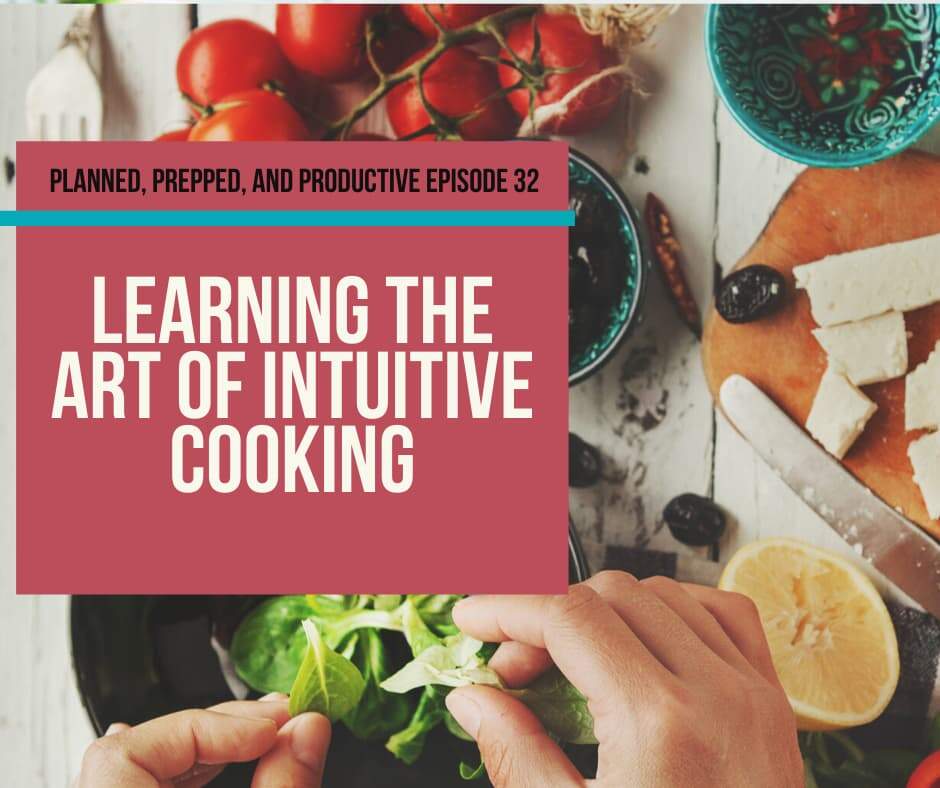
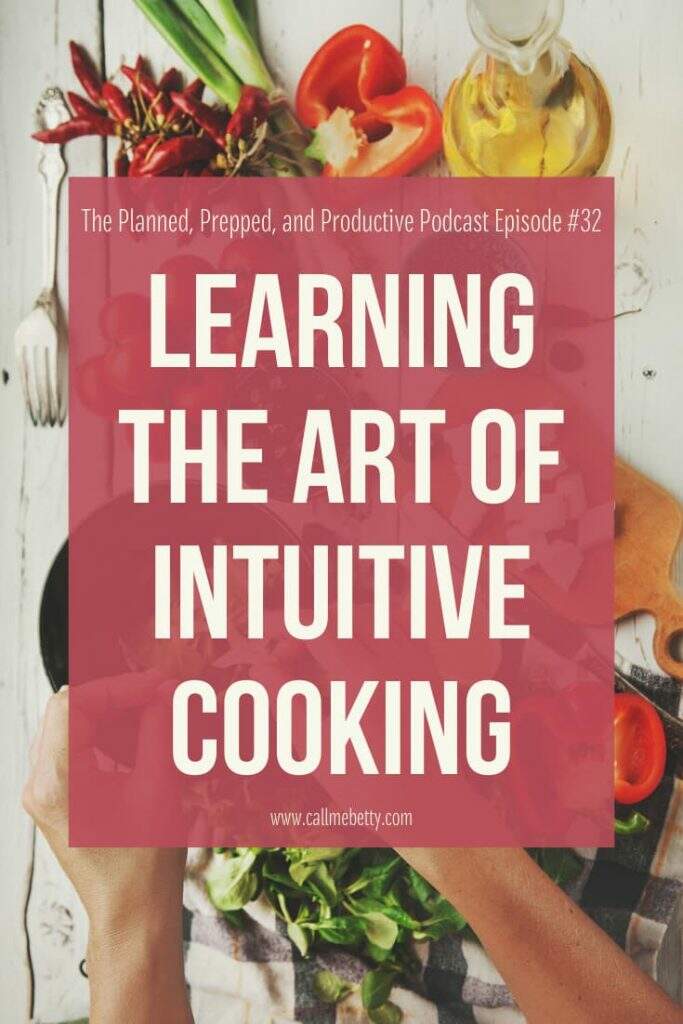
It begins with me cooking a new recipe that is unfamiliar territory for me. I begin and everything seems to be going well until I come to a point in the recipe that makes me think.
Let’s pretend I’m making an apple pie for example.
I’ll get to the point where i’m making the apple pie filling and I will think, “gee, I am surprised there’s no flour or cornstarch in this to thicken it up. I wonder if I should add some?”
“…no, I’m sure it’s fine. After all, I’m sure this person online who made this recipe and posted it must know more than me. Maybe there’s enough sugar to thicken it. It’s fine. I’ll do what they say”
Then, when I inevitably end up with a watery mess for a pie, I’ll think gah….why didn’t I just trust myself?
Has this ever happened to you?
Cooking like a chef with the art of intuitive cooking
I honestly can’t say when or how it happened, but after years and years of cooking regularly I started to notice patterns and those patterns have taught me what things will work, and what things won’t.
For example, I know that a fruit pie without some kind of thickener will be watery.
I know that any dish with more than 1/4 tsp of cayenne pepper will be too spicy for my family.
I know that most dishes need about 1 tsp of salt to be salted to “our taste” but that I will always start with just 1/2 tsp and gradually move up from there because a dish that is too salty is unsalvageable.
I know that a dish that calls for sugar in a marinade will likely burn on the grill.
…and so on and so forth.
But for some reason, despite all of this useful knowledge, I often find myself trusting recipes more than I trust myself and I don’t allow myself to practice “intuitive cooking”
Learning to trust yourself more than a recipe
Recipes are wonderful, I mean I’ve got a full blog full of them and I still rely on them often.
But I truly believe that our strict reliance on recipes can be crippling and actually cause us MORE stress in the kitchen and cause us to avoid cooking.
Ways a recipe can be crippling
There are a lot of different ways a recipe can cripple us. Let’s take a recipe for pasta that looks amazing, but it has mushrooms. Many of us would pass that recipe up if we had a husband who “doesn’t eat fungus” (as mine would say).
There also might be a recipe that calls for a few things that we don’t have right now so we decide to pass it up.
Lastly, many times recipes are just wrong. The people who write them might have written them down incorrectly, or they may have different tastes than we do. Because recipes can be so easily shared and adapted (which is beautiful) it also can make recipes more difficult to trust.
But for some reason, for many of us the words on that page feel like gospel and we’re scared to deviate from them EVEN when our intuition tells us that we should.
Getting started with intuitive cooking
- Sharpen your knife and hone your knife skills
- One thing I say ALL THE time is that if you hate cooking, sharpen your knife and work on your knife skills. Cooking without a proper knife or proper knife skills is frustrating and time consuming. Literally just watching my husband cut carrots makes me hate cooking. Knife skills are the first skill to perfect to become a great cook.
- Practice Cooking with a recipe
- It will be pretty challenging to become an intuitive cook, if you aren’t familiar with cooking at all. Think of a recipe like a template, it’s wonderful to start out with when you don’t know all the ins and outs of something, but as you learn more you’ll find yourself wanting to break the template or maker your own.
- Familiarize yourself with cooking terms
- As you begin cooking from recipes you may start to come across terms you aren’t familiar with. Start writing them down and create a little glossary for yourself as you figure out and practice different terms and techniques.
- Learn basic cooking techniques that you can apply to many different recipes
- Do you know what a roux is and how they are used? Can you make a custard without scrambling your eggs? What is the purpose of creaming butter and sugar? These are the questions you can ask yourself and the techniques you can start to practice
- Look for patterns in recipes
- This goes along with learning cooking techniques, but once you have learned techniques start looking for them in recipes.
- You should also look for other patterns that you’d never noticed before. From our earlier example, if you make fruit pies you’ll start to notice that almost all of them contain flour or cornstarch. Once you notice patterns, figure out WHY they exist. Which brings me to the next point.
- Familiarize yourself with the role of different ingredients in finished dishes
- Cooking and baking is a science (and an art) you’ll become a much better cook when you understand WHY an ingredient is added to a recipe instead of just trusting that you need it.
- For example, have you ever wondered why a certain dish might use baking soda instead of baking powder? Well, baking soda needs an acid to activate it. So if you’re making a cake with buttermilk (an acid) you might use baking soda. If you see a recipe that uses baking soda but doesn’t have an acid RUN FAR AWAY!!! It will taste bitter AND it won’t rise properly. But you’d never know that if you didn’t figure out why you were adding baking soda to begin with.
- Familiarize yourself with common substitutions
- Don’t give up on a dish just because you don’t have everything in it, or because you don’t like everything in it. Don’t have sour cream? Try greek yogurt. Don’t like mushrooms? Substitute a different quick cooking veggie like zucchini.
- Making small substitutions is a great way to start to break free from the recipe trap and see that cooking rules are meant to be broken and you might create something you like even better than the original recipe.
- Familiarize yourself with common flavor and spice combinations
- One of my favorite ways to play with a recipe is to play with the spices and flavor combinations. The easiest way (for me) to do this is to pick a cuisine I’m inspired by (let’s take asian food for example) and to try and create a dish inspired by those flavors. So if I want to make a salad I’m going to use soy, ginger, rice vinegar, garlic, cilantro and other flavors that are typically associated with that kind of cuisine. I will also want to turn to veggies (like edamame and cabbage) that are commonly used in this type of cuisine as well.
- You can also just try flavor combinations that are known to go well together. (like garlic and anything ???)
- Create some basic recipe templates
- Once you have been cooking and pairing flavors for awhile you will begin to notice that basically every soup begins the same way (with sauteeing your aromatic veggies). You will notice that you can make a breakfast skillet with a base of potatoes and eggs and combine it with any meat/veggie/spice combination you choose.
- When you’ve reached this point you are ready to start creating some base recipes (for example create a template that is “how to make a soup”) and from there you can create your very own recipes.
- Not every recipe will be a total winner, but with some simple templates and guides you shouldn’t be able to fail too horribly.
- Let Loose and have fun
- Even after you’ve reached this point in the process, you will likely still cook from recipes often. But hopefully you wil have learned how you can alter recipes for what you have on hand, and when you’re feeling extra creative you’ll be willing to just throw everything out the window and create something just for fun.
Even after years of cooking, I have a hard time trusting myself as a cook. I am planning to use some of these techniques myself to learn to trust that I DO know what I am talking about, sometimes more than a recipe and that I can create delicious meals out of whatever I have on hand.
What about you, do you practice intuitive cooking or do you follow a recipe to a T? I’d love to hear about it in the comments below.

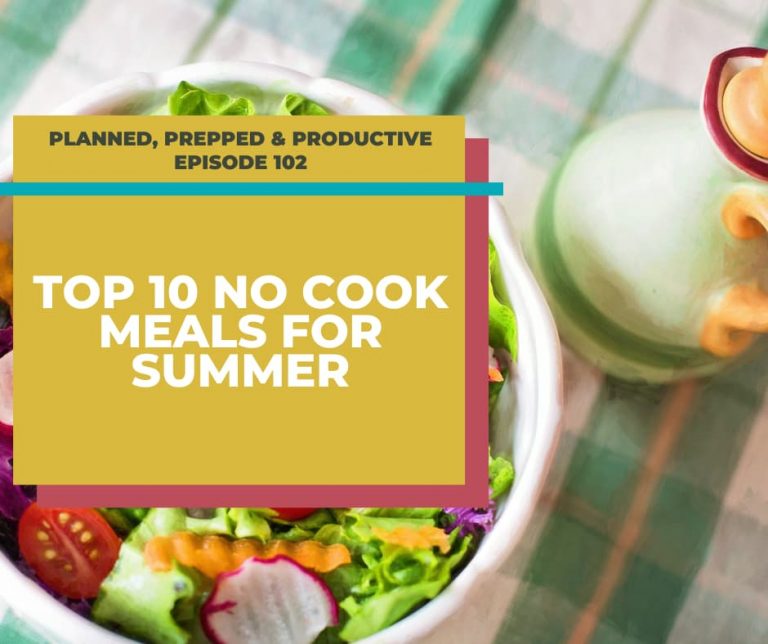
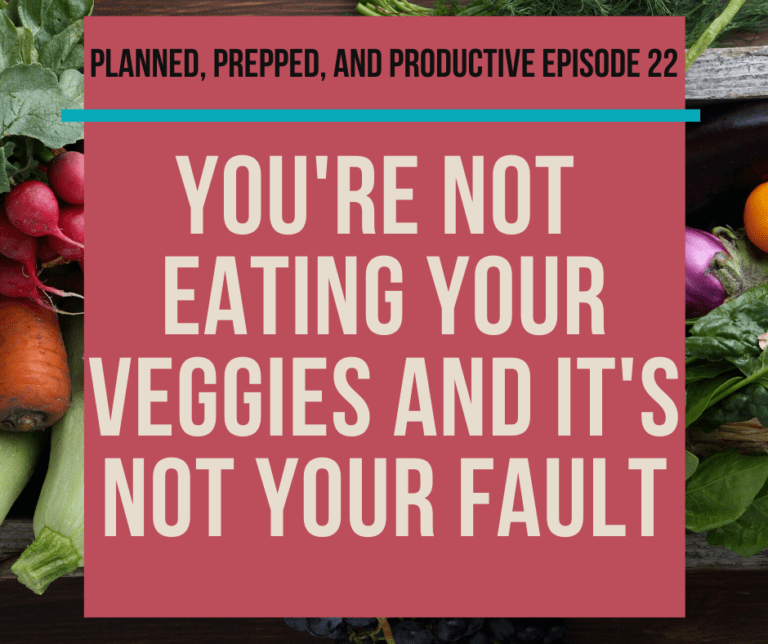



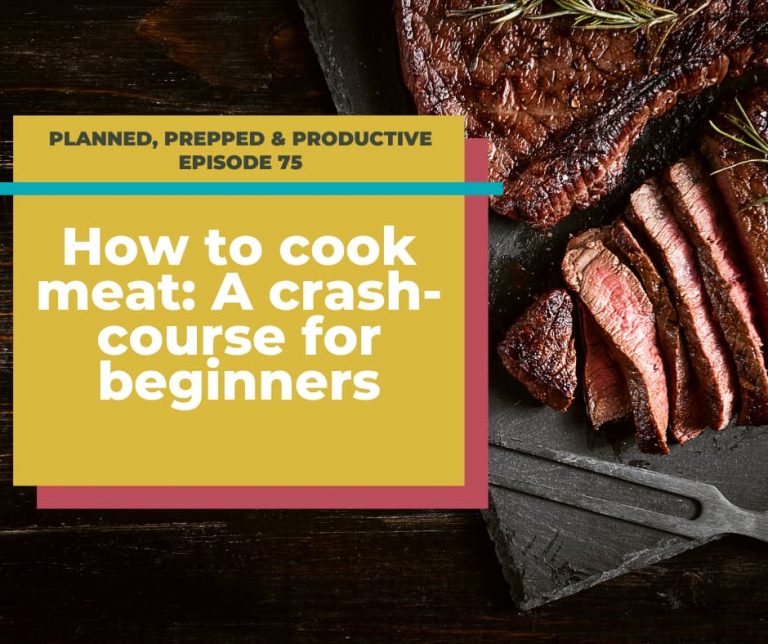
I had no idea that having knife skills was so important for cooking! My daughters and I want to start cooking together to help us all grow and enjoy the experience together. I want to find a book or a blogger that can offer us tips for how to make the most of the experience.